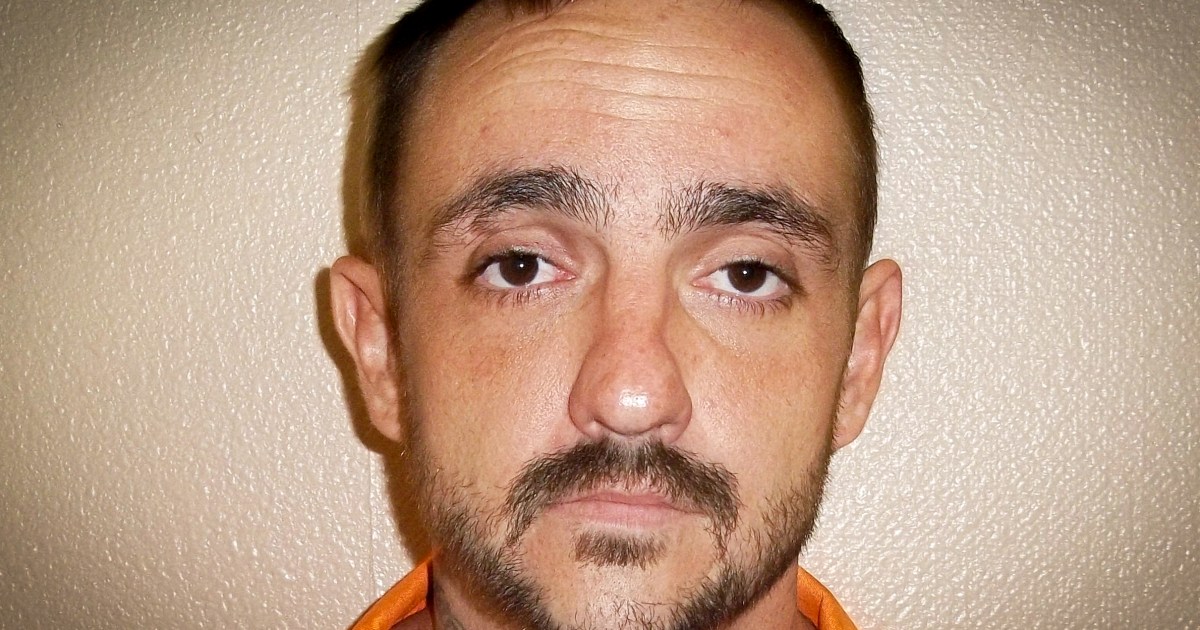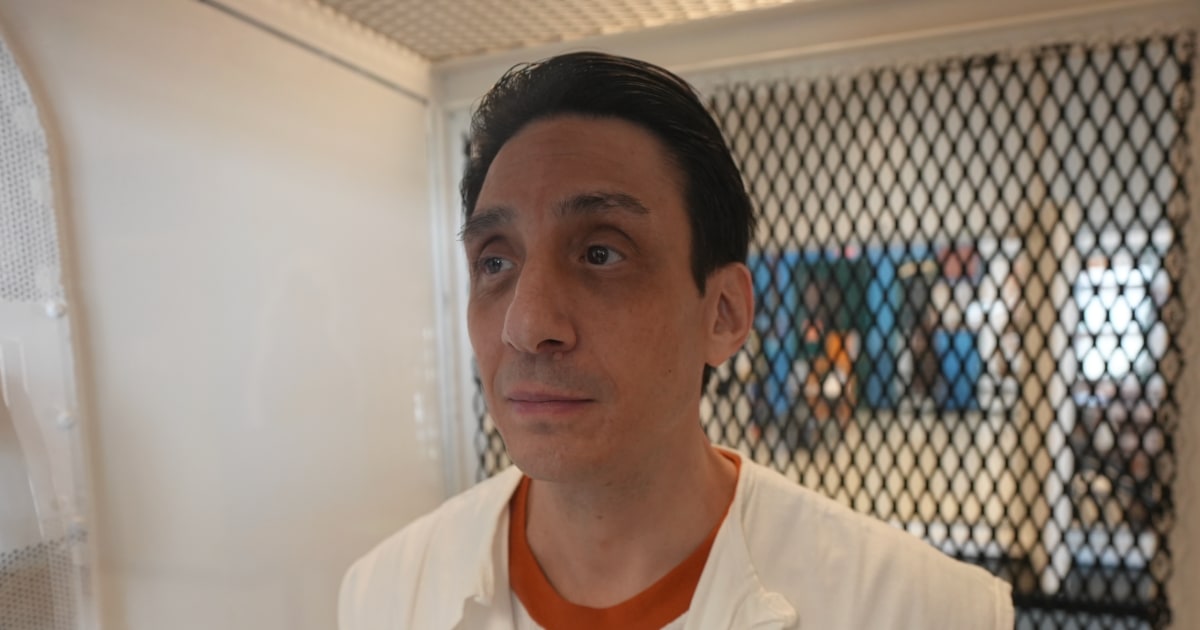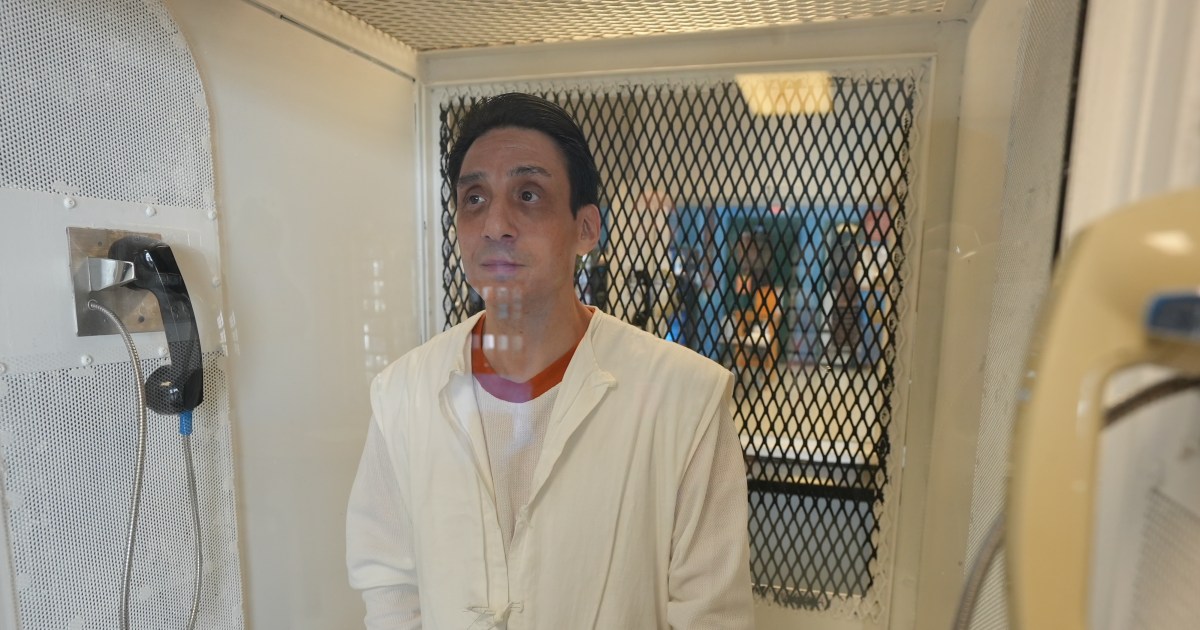By
Phil McCausland
-
NBC News
Alabama is preparing to execute a prisoner by lethal injection this Thursday night despite the fact that his lawyers allege that he has an IQ of only 64 points, which is considered a disability.
The state Supreme Court stayed the execution in February because the prisoner was not allowed to have a pastor by his side during the last moments of his life.
Willie B. Smith III, 52, was sentenced to
death for the 1991 murder of Sharma Ruth Johnson, 22
.
Smith kidnapped Johnson, the sister of a police detective, at gunpoint when the woman was withdrawing money from an ATM.
He stole $ 80 from her and took her to a cemetery where he shot her in the neck.
Willie B. Smith III, in an undated photo, Alabama Department of Corrections
Last week, the federal human rights office filed a lawsuit in favor of Smith alleging that he did not obtain advice when he was given a form in 2018 advising inmates that they had the right to request hydrogen hypoxia as an execution method.
[The Supreme Court suspends the execution of a Latino in Texas who asked to have his pastor by his side during the process]
The state gave inmates 30 days to decide if they wanted to be executed using this method, after the state Congress passed a law to that end.
Smith's attorneys argue that under the Americans with Disabilities Act, Smith should have been given special advice to understand what it was about.
Since he did not receive any information, Smith did not return the completed form to the prison authorities.
Had he adopted the method, like many of his companions on death row, he would not have been eligible to be executed yet because the authorities in charge of implementing this new method have not yet finished developing the protocol.
"Because Smith suffers from significant cognitive impairments, he alleges that he did not have the opportunity to enjoy the benefits of the statute and the choice format without being helped to understand the format and its contents," the lawsuit said.
People sentenced to death will have to choose between electrocution or shooting in South Carolina
May 18, 202101: 04
A professor of audiology and speech sciences at the University of Northern Colorado found the form had a comprehension difficulty equivalent to a text for an 11th grader, according to court documents.
Smith's level of reading comprehension was between the third and fourth grade
when the expert assessed him.
A federal judge ruled Sunday that executing Smith by lethal injection did not violate his rights.
But his attorneys have since filed a motion in the 11th Circuit Court of Appeals in hopes of receiving a stay of execution so they can appeal the decision.
The Alabama attorney general's office denies that Smith is disabled and has argued that the claims are a procrastination tactic.
[Biden Administration suspends federal executions]
Yet Smith's intellectual disability has long been at the center of his attorneys' arguments, and court documents show there is evidence to back up these claims.
While the Supreme Court ruled in 2002 that the execution of disabled persons was unconstitutional and a violation of the Eighth Amendment prohibition on cruel and unusual punishments, the 11th Circuit Court of Appeals ruled in 2019 that this decision could not be applied retroactively. to Smith.
The first woman in almost 70 years executed in the United States.
Jan. 13, 202100: 30
Robert Dunham, director of the Center for Information on the Death Penalty, said the biggest problem is that Smith suffers from an intellectual disability and should therefore be constitutionally protected from the death penalty.
The other problem Dunham identified is that they reached an agreement for a religious advisor to be present in the death chamber and to administer the corresponding religious rites before the execution.
There is another case pending in the Supreme Court between Texas and John Ramírez that will be reviewed this November 1.
In this case, only the inmate's religious advisor is allowed to be in the room, but will not be able to speak or pray.
"The fact that Alabama can carry out the execution clearly demonstrates that Texas' position has no legal merit under the Common Religious Use Act and the Institutionalized Persons Act," he said.
[This man was arrested for a crime he did not commit. When he denied it, he was admitted to a psychiatric hospital]
The latest concern is regarding an ongoing problem in Alabama, where
the number of witnesses allowed in the death chamber is limited due to the pandemic
.
While the state has changed its mind regarding this proceeding after only allowing one media witness in Smith's last scheduled execution, Dunham said it raises concerns about the transparency of the case.
"Initially, they said it was not safe enough for Willie Smith to have the full complement of witnesses to which he is legally entitled," the attorney said.
"In the end they agreed that he can have his six witnesses, but this is part of the lack of transparency around the executions in Alabama," he said.
Smith would be the eighth person to be executed in the United States in 2021, according to the Information Center on the Death Penalty.
There are four more executions scheduled for this year, three in Oklahoma and one in Texas.









